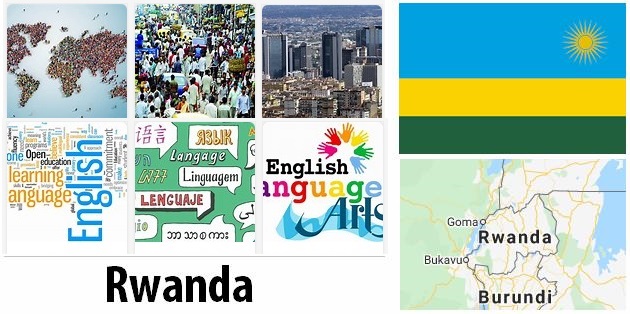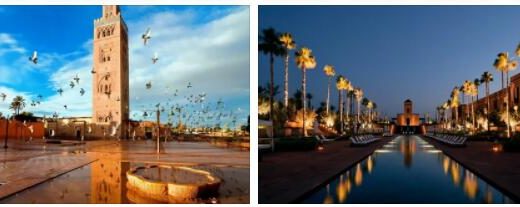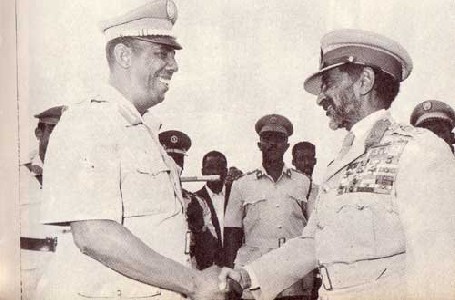Nigeria Geopolitics
With more than 178 million residents, the Federal Republic of Nigeria, made up of 36 states, is the most populous country in Africa and among the ten largest in the world. Each federated state is divided into provinces, districts and local authorities which in some cases (Borno and Kano, for example) have broad decision-making powers. With the return to civilian rule in 1999, Nigeria has progressively increased its international weight becoming one of the most important players on the continent. The end of the military regime coincided with a period of economic growth and profound social changes, which led to a greater polarization of wealth between a wealthy elite and an increasingly poor mass dependent on the informal economy.
At the time of independence from British rule in 1960, the federation was made up of three states, as many as the largest ethnic groups in the country: Hausa-fulani, Yoruba, and Igbo (or Igbo). On the basis of the system of indirect administration (indirect rule) introduced by the British, the Nigerian federal model is based precisely on ethnic groups and, in some cases, also recognizes their traditional leaders. There is also an unwritten compromise within the largest ruling party, called zoning, which consists in the weighting and rotation of the major institutional offices among the most important groups in the country, also on the basis of the religion (Christian or Muslim) of the leaders. L ‘ ethnicity it has acquired an increasing importance to the detriment of the national one. The federal system has undergone a progressive internal fragmentation to dilute the weight of the larger communities, which has led from the three federated states of 1960 to the current 36 and the movement of the capital from Lagos to Abuja, the geographic center of the country. The competition for the management of resources, starting with the land, replicates the contrast between ethnic groups defined as originating within a certain regional context and others, vice versa, considered immigrants. Nigeria is divided along the axis of a dual model (north and south, Muslims and Christians) and this generates tensions that are difficult to manage.
In 1967 the attempted secession of Biafra, the land of the Igbo, in the south-east of the federation, started from the persecutions against the Igbo who emigrated to the north after the military coup of 1966. The war ended in 1970 with the surrender of the secessionists and the reintegration of the province in Nigeria, formally equal, but with a train of resentment for the atrocities committed and the reciprocal sins. Boundaries have not been questioned since then, even if the specter of a rupture is always looming.
According to THENAILMYTHOLOGY.COM, after an almost uninterrupted thirty years of military rule (from 1966 to 1979 and then again from 1983), in 1998 the then president Abdulsalami Abubakar initiated the transition to civil power. In the 1999 elections he was elected to the presidency with the support of the People’s Democratic Party (Pdp) the former general Olusegun Obasanjo, who, despite being a native of the southwest, of Yoruba language and culture, was however close to the military of the north for having managed with them power in the transition of the seventies. Obasanjo, confirmed to lead the country in the controversial elections of 2003, had the merit of ferrying the Nigerian political system from a military to a civilian government. However, his attempt to amend the Constitution to be able to reapply for the third term failed. Instead, he became president of the African Union (A u), between 2004 and 2006, and is now a member of the Committee of Sages, an advisory body of the Au, made up of political personalities from the continent who have distinguished themselves for their work in favor of democracy. Nigeria first experienced democratic succession in 2007 (albeit within the same camp). The candidate of the ruling and dolphin party of the outgoing president, Umaru Yar’Adua, a Muslim from the north, was elected with 70% of the votes, even if the electoral result was marred by violence and cross protests. After Yar’Adua’s death from illness in May 2010, the presidency was assumed by the vice president Goodluck Jonathan, a Christian from the south, then officially elected in the April 2011 elections. The northern-Muslim component considered that vote invalid because the principle of alternation between north and south had not been respected since Yar’Adua had not completed its first term. In 2013, seven governors belonging to the Fr.DPs, coming mainly from the states of the Muslim north, have created an alternative current, the New PDP, to demand a more equitable redistribution of offices taking into account ethnic and geographical belonging. The governors later left the PDP, joining the fledgling political force of the All Progressives Congress (A pc).
The coming from the military ranks of many of the institutional representatives, also favored by the fact that the officers are often retired prematurely, so as to avoid the risk that their leadership could be opposed to that of the president, deeply influences the political life of the country.. The consequence was to sharpen the personalistic and clientelist component of the relationships, to diminish the propensity for a transparent debate and to favor a highly centralized federal administration that was not very inclined to confront the opposition.
The leadership of Jonathan has been called into question by the inefficiency of the government’s response to the heinous actions of Boko Haram, an armed radical Islamist organization born in the early 2000s, and Ansaru, a jihadist branch of Boko Haram which separated from the parent company in 2012. The war against the terrorist group began in 2009 and lasted until today causing more than 15,000 deaths. The victims of the attacks are counted among Christians, moderate Muslims, the military and government representatives, but often the attacks affect civilians without distinction. To tackle the problem, which is increasingly a regional threat, an international coalition led by Nigeria was established in early 2015 with the participation of Niger, Chad, Cameroon and Benin and approved by the African Union.
In the presidential elections of 2015, scheduled for February but postponed by six weeks due to security concerns, Jonathan was defeated by All Progressive Congress (A pc) candidate Muhammadu Buhari, a Muslim former general of the north, who was already leading the country. in the first half of the 80s.
The Niger Delta region, very rich in oil and natural gas fields, remains an unstable area. The extractive rent is redistributed among all the states while only a small part of the revenues remain with the communities of the delta, which pay a high price in terms of pollution. The creation of the Movement for the Survival of the Ogoni People (Mosop), the group that first brought these issues to international attention, cost the life of Ken Saro Wiwa, an Ogoni writer and intellectual, who was accused of murder and executed in 1995. The unfair redistribution of oil revenues led to the ’emergence of guerrilla groups who attacked the installations of large international companies and the police and army posts. Among these groups the M end stood out(Movement for Emancipation of Niger Delta) which in 2009 reached an agreement with the government for a ceasefire: in addition to the amnesty for more than 12,000 militants, the central authority has committed to investing in various services (schools, hospitals and communication routes) and to promote a federal law that assigns 10% of the income to local communities. However, poverty and unemployment continue to fuel crime and piracy, phenomena that often enjoy the connivance of the authorities. From the point of view of medical prophylaxis, Nigeria has responded well to the Ebola threat, managing to stop the epidemic in 20 cases, of which 8 were fatal.
Strategic relations with India, China and Russia have been added more recently to the close and consolidated ties with the United States and the United Kingdom. Following the dispute over the Bakassi peninsula, which the International Court of Justice in The Hague ruled in 2002 to be from Cameroon, the tension between Abuja and Yaoundé has partially subsided. Since 2015 the two countries have collaborated to fight Boko Haram, but mutual distrust remains high, so much so that the Cameroonian forces are the only ones in the coalition that cannot violate the Nigerian border.
Nigeria competes with South Africa for the role of the continent’s economic, political and cultural leader and has suffered from admitting its rival to the bloc of emerging BRICS powers. Nigeria is a member of the Organization of Petroleum Exporting Countries (OPEC), United Nations (A), the African Union (Au), the Organization of Islamic Cooperation (OIC) and the Economic Community of West African States (Ecowas), in which Abuja plays a leadership role.



